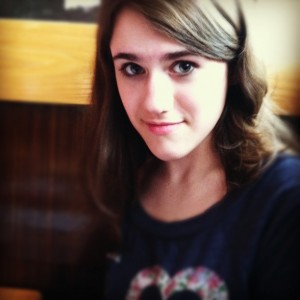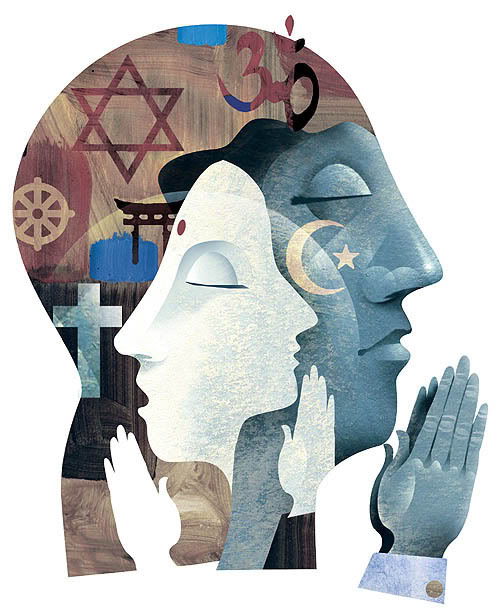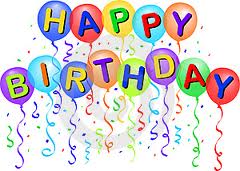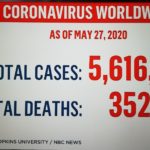by Emily Knott
You used to take black and white photographs of strangers. You hung the prints in your room like an amateur Diane Arbus, and the first time I saw the walls, layered with unsmiling people, I thought you must be depressed. But then you told me about them, incomplete stories about lost families asking for directions, or snapshots of children at the park taken while their mothers weren’t looking. I always asked about the homeless man standing on the railroad tracks, a plastic grocery bag slung over his shoulder. You’d offered him a cigarette, but he said he didn’t smoke. You quit soon after.
You said photography was like space—no one sees things the way they’re supposed to. I never understood what you meant until you took me to your grandfather’s homestead and I learned how to truly look at a sky, to pinpoint the locations of stars and constellations among the Milky Way’s arc. We spent most summer nights finding Sirius, Vega, Capella, any of the brightest stars, and fixed their positions into our memories. But we knew that these points were fluid.When fall came, the gradual motion that had been imperceptible to us would have created an unrecognizable sky.
I couldn’tremember how we met. We knew each other throughout elementary and middle and high school, but we never spoke. In second grade, I thought I loved you. You spent recess drawing under a sycamore tree and didn’t care what anyone else thought about you and I wanted to be like that, to not stay awake every night thinking about the things people didn’t say to me.
I had forgotten about my childhood crushuntil we became best friends in high school.You told me about your father’s constant disapproval, how he yelled at you, even in the presence of strangers.Whenever the shouting started, I slipped out of the room and pretended not to notice, but I knew what he said. You never grew out of the childhood phase when you wanted to be an astronaut, and you pursued the sort of lifelong dream that dissolves into a series of office jobs sown in cubicles. His attempts to displace the high aspirations from your mind reinforced your motivation. After each argument, you wasted entire rolls of film on photographs ruined with camera shake.
Astronomy became our pastime and your grandfather’s house became our world. We found a telescope in the attic, the pieces wrapped in faded floral sheets that had belonged to your mother. We spent an entire Sunday reassembling it, even though we were unsure if its previous life had fractured it beyond repair.
In the afternoon, your grandfather came out with a pitcher of iced tea to survey our work and clarify the instructions where ringed coffee stains and missing ink along creases made words unreadable.When you mixed up the placement of components, I didn’t correct you, assuming that you were familiar with them.Somehow though, everything fit together, and the last vestiges of sunlight had barely faded when we saw Venusfor the first time, a hazy red disc in the sky. Your grandfather tried to teach us how to focus the lens, align the finderscope, lock the axis, but neither of us ever understood the mechanics of it.
I compared that night’s sky to star charts containingthe cursive fragments of notesyou’d taken, silver ink spelled out over theconstellations. Venus—brightest planet in the solar system, one annotationread. But you wondered how the earth appeared in the atmosphere of other worlds, this blue marbled planet hung in an unfamiliar sky. The intricacies of your mind fascinated me, and I wanted to hear everything you kept silent.
You told me stories about your past that no one else knew.Little things, like the time we stole your father’s old Chevrolet and parked it by Lake Murray at sunset. You said he used to take you there at night sometimes, in the months following the divorce. He talked about how his marriage had fallen apart and taught you life lessons about love and its end, things no seven year old could have understood.
From the front seat of your father’s truck, we watched sailboats create ripples across the water’s surface. The golden sunset permeated the clouds, lake, air itself—this should have been romantic.This radiance lasted a few minutes before the horizon rose above the sun, scattering light and washing everything in the iridescent blue of twilight.You named the stars as they appeared, one by one, without having to consult an atlas of the heavens. Nothing was more distant from us than your father’s drunken aphorisms about heartbreak.
In August, we drove to your grandfather’s house to watch a meteor shower. We waited for three A.M., when meteors fell at their fastest rate, butthe hour came and passed. Instead, we kissed for the first time, and I thought of the astrophysics of two galaxies colliding, gravities dancing until the two combine into one.
When I said I was sleepy, you wrapped me in your blanket and we lay out on the grass, straining our eyes to see streaks of light that should have been obvious. I shut my eyes and saw thousands of shooting stars stratifying the atmosphere. The reds and blues blended together into streams, like some sort of cosmic precipitation, but none of it was real.
The day after the meteor shower, we drove back to your house and made requisite jokes about the slight awkwardness of friends who fall in love. Because that’s what you said it was—you used the word love and laughed. You didn’t notice that I stayed silent.
When I told your grandfather I’d never been to church, he invited us to visit the small Methodist congregationwhere he had grown up. Elderly couples smiled and edged closer together to make space for us. Later, you told me how your grandfather satwith his wife in the same straight-backed pew for fifty years without missing a single week, not even when she passed away. Your grandfather drove to church alone the day after her funeral, saying that he needed God then more than ever.
There was something sympathetic about the burgundy carpeting and long, white candles decorating the altar. The congregation rose and seated themselves in unison, having memorized the intervals for standing and sitting. They opened hymnals to sing along with the organ, but no one glanced down at the text to read the words they’d known since childhood. I wondered if the lives of the congregation were anything but discipline.
The first school dance of the year, you took pictures of overweight girls with folds of skin spilling over the tops of their elastic dresses. They’re the most interesting, you said. Something about the self-conscious, flattered looks on their faces when you asked to take their photographs. I watched from a distance and took small sips of water from a stranger’spaper cup. Alone, I noticed details—spills on white tablecloths, the reluctant closeness of new couples, girls who abandoned their dates to talk to friends.
You came back and asked me to dance even though neither of us knew how. Our slow dance was a combination of heat and missteps and my whispered apologies smothered in the folds of your shirt. We left early—that night, the ellipses of orbits wouldcoincide at perfect angles, bringing Jupiter into clear view.We told our parents it was for physics class, because they didn’t believe that two kids could love the complexities of space so much as to lose hours of sleep just to watch planets align in the vignette of a telescope lens.
At midnight, Jupiter and Uranus and the moon rose to the sky’s zenith. We kissed, as if the planets were celestial mistletoe suspended millions of miles above us. Observing space was all a matter of timing, finding the right dates and the right times and being there when it happened. I could almost distinguish Jupiter’s layers through the telescope, like swirling patterns in planks of wood, but we were too distant to see anything other than blurred variation in color. The planet was tinted the pale shades of desert sand, colors that would be overlooked anywhere else. But festooned across an atmosphere, our imaginations brought everything into focus with thick clouds the size of earth, twisting into storms that lasted lifetimes.
You wanted to witness Jupiter’s arc, like watching Apollo’s slow progress through the realm of the gods. It was easy to believe that planets were deities, sentient beings whose movements had no clear pattern. In cosmic time, millennia blended together and nothing was concrete.We could have been Greeks, Romans, persecuted remnant pagans who worshiped the religion of stars, transforming in less time than it took the cosmos to exhale—stars expanding, then condensing and twisting so far into the fabric of space-time that they become black holes, the inverse of their previous selves.
You asked me about my childhood, wondering why I loved space. Above us, Jupiter lurched a few degrees closer to earth. A breeze picked up and carried the mating call ofalone distant katydid, too late in the season to find a female. Its song dwindled into silence. There’s no reason, I said. I remembered the year I turned ten. Instead of playing alone at recess, I hid inside the classroom and flipped through my science textbook, memorizing entire passages about the physics of planetary orbit. I stayed awake late at night to sneak glances out of my window, searching the sky for certain alignments. My mother thought the devil had possessed me with a fascination of astrology, and told me not to talk about space anymore. Maybe that only made me love it more.
But I didn’t tell you this. You hadn’t asked how. You wanted to know the whys, maybe wondering if genetics could form a synaptic propensity for staring into starlight hours at a time.But an interest in the stars wasn’t passed down from one generation to the next in linear inheritance—it was written in human biology, some chemical in the brain that made us believe in the routine of memorized hymns or patterns of orbit, assigning predictability to questions that had no answers. I realized then that you didn’t understand.
The nights were becoming colder andlonger when the catstarted visiting us. He was a tiny, emaciated thing whose owner let him roam around your grandfather’s property. So we left scraps in the grass for him, disregarding warnings our kindergarten teachers had given us about strays. We watched him chase mice invisible to our eyes, and scratched behind his ears when he rubbed against our legs. His name should be Ginger, you said, even though he was all white and black, no trace of orange in his fur. We didn’t know his real name—the owners lived across several dozen acres of land, and never spoke to us.
The existence of another living creature seemed almost unnatural, like it was just us and the endless number of stars. Ginger stretched out at our feet, clawing the tips of our shoes as youdescribed Fermi’s Paradox—how alone we were in the universe, even though it wasn’t supposed to be that way. By now, mythical lights in the sky should have solidified into historical visitation from intelligent life across the galaxy. We stood alone in the tall grass, aware that we were stuck traveling endless miles in circles around the sun. We drove home in silence that night, wondering about other forms of life and perceiving the vast emptiness between things. Distances kept us from knowing the answers.
The autumnal equinox fell on a Friday that year. It marked the astronomical transition from summer to fall, the point when day becomes shorter than night, but an endless rain drenched everything in ambiguity. The humid summer breeze became a cold, constant wind, and everyone wore brand new coats and sweaters to school. I couldn’t pay for a new jacket, so we climbed into your grandfather’s attic and looked through a footlocker of clothes your mother had worn in college.
You tossed aside a woolenpea coat in the style of Jacqueline Bouvier Kennedy, like the one my grandmother used to own. Your mother must have received it secondhand somewhere. It fell past my knees, but I loved the feel of its loose cotton lining anddated fashion. At some point, coats like this had been in every woman’s closet. I shivered and enfolded myself in the creased fabric.
This was the only photograph you took of me.
It was October with the fields of dry, husk-ridden cotton fields.Instead of spending cold nights trying to re-chart the stars for fall, we visited the library almost every day to read encyclopedias about space, illustrated with pixelated images that were edited into something anyone could find beauty in. We stared for hours at the pages printed with false-color nebulas, and you mentioned what a shame it was that we would only ever see them in this manipulated form. I read sections of the text out loud, whispering when others walked past. You asked me if I was being polite or shy, and I didn’t know the answer.
Your father told you to get a job or move out, so you worked the night shift as the cashier at a twenty-four hour drug store. I visited you there once, but you didn’t want me to seeyou in a color-coded uniform with a nametag clipped to your shirt. Instead, I drove to your grandfather’s house alone and set up your telescope. I had never noticed how, at night, shadows lengthened over the dead field and rustling in shriveled weeds gave warning to the imaginedattacks of rabid animals. I panicked and ran away, leaving the telescope.
I went back the next morning, and the telescope was still there, transformed in thesunlight into an old, cheap toy from an earlier decade. I carried it to your grandfather’s garage and drove home. I never went back to that field. You didn’t have time for looking into telescopes anymore, but my Circadian Rhythm had molded itself around sleepless nights. When I couldn’t sleep, I parked across from the drugstore where you worked and watched your silhouette lean against the counter, straightening the rows of mints and cigarettes, and saw you take up smoking again. The store’s neon sign burned itself into my retinas, and I watched one of the bright red letters flicker out.
I saw you most nights, but we didn’t talk again for almost a month.You had the flu in November, and you took a few days off. We drove home from school together one afternoon, but you didn’t say anything when I told you about going to the field alone, sleepless nights, recent astronomical developments that we could look at. I realized that you weren’t the same. I stayed quiet for a few minutes. What happened, I asked. I wondered if you had met someone at work, if somehow you had forgotten me under fluorescent lights.You didn’t answer. Silence pervaded the rest of the drive to your house. I shouldn’t have felt like a stranger in someone else’s home, but I did.
Your room looked impossibly the same. But then you tore black and white photographs off the walls. They twirled through the air, like gray scale autumn leaves, and landed with bent corners and torn edges. You didn’t stop until the walls were bare, and I left then, thinking of all of those girls at the school dance and the homeless man who refused a cigarette and pictures of children playing, all fluttering to the floor.
________
Emily Knott is a junior at the South Carolina Governor’s School for the Arts and Humanities, where her creative writing teachers (affectionately?) refer to her as “Squirrel Baby.” When Squirrel Baby isn’t writing, she enjoys online window shopping, British television, and listening to strangers’ conversations (her best fiction comes from this kind of “research”). In the future, she hopes to earn an MFA in creative writing, become a published author, and, of course, drink lots and lots of coffee.










Trackbacks/Pingbacks